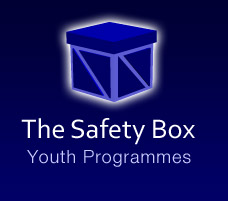Primary School Programs
The Safety Box primary school programs complement the National Curriculum standards for personal, social and health education (PSHE), Enrichment and Citizenship. We aim to improve the health and well-being of children throughout their primary education equipping them with the effective skills and confidence to move onto secondary school. Our aim is to work with primary schools to safeguard pupils against child criminal exploitation, knife crime, grooming, bullying and give them the necessary skill sets to transition confidently to secondary school.
We focus heavily also on motivation, life skills and personal development which provide inspiration for pupils in order to raise students’ attainment levels and self esteem. Our primary school courses focus on teaching pupils the fundamentals of personal safety while building self esteem and reinforcing positive values such as respect for others. Special attention is given in cases where behavioural problems are an issue where we tailor courses to address pivoting mindsets through an evidenced intervention methodology.
Some of the programs we offer Primary Schools for year 5 and 6 are listed below, see below a ITV feature on our Safeguarding against CCE program.
Safeguarding Against Gangs, Grooming & Knife Crime. (4 Weeks, or PSHE Activity Day)
Transition to Secondary School (Step Up Program - See below)
Cyber Bullying and Internet Safety (Workshop or Extended Assembly)
Aspire Higher Personal Development Program for Primary Schools. (6 weeks)
The Safety Box Knife Self Defence Program (CATS) (4 - 6 Weeks, Can run as summer holiday club also)
After School & Lunch time Karate Classes (Can run as holiday club also)
Youth Football (Can run as holiday club also)
The programs can be delivered as 6-4 week programs, 1 hour workshops or as extended assemblies and some as activity days. The weekly sessions of Karate and Football classes can be delivered in term times and holidays.
Some of the modules taught on our Step UP Preparation Course for Primary to secondary transition - 4 weeks
(Can be run during term time or in summer holidays)
What are some of the fears
Understanding the transition process and what it means for them;
Confidence building
Planning a new route
How to stay safe to and from school
Staying fit and Healthy
Understanding risk factors associated with transition
What not to do when you get to secondary school
Getting the most out of your secondary school experience
Lunch money, emergency money, mobile phones and other valuables
Making friends
Regulating emotions and behaviour and showing empathy
Creating a regular routine
Overcoming fear
Creating an awareness of new surroundings
Safety on public transport
Walking home in the winter
The way to overcome fear and anxiety
Getting to know your new classmates
Thinking about bullies and how to handle them
Personal protection and safety awareness
Internet safety
The new dangers of CCE and youth violence
Where to get support
Safety Awareness part 2
Getting to know your new teacher
Primary School Program
The Safety Box Step UP primary school program is designed for year 6 pupils to boost confidence, self-esteem and most importantly teach them how to stay safe. The sessions give an informal opportunity to chat about fears and anxieties that they may have before going to secondary school. Starting secondary school is a significant time in a child’s life and can be daunting. It marks a passage into adolescence and requires major adjustments in children:
From being the oldest to being the youngest
Carrying their bags from classroom to classroom
Finding a different route to school
To finding their way around a large school
With different teachers for different subjects
A child's journey to school will probably take a new and unfamiliar route, possibly involving a longer walk, bus ride or train journey, this opens many issues relating to personal safety.
The programs can be also tailor built for children that have social problems this may include youth:
- to be at risk of school exclusion or suspension;
- have low school attendance or truancy issues;
- to have siblings or parents who have been victims or perpetrators of youth crime and gangs;
- to have experienced adverse childhood experiences (ACEs);
- to have behavioural and emotional difficulties, or suffer from isolation;
- to have problematic peers
- to exhibit persistent disruptive behaviour;
- to have poor parental supervision or parents with substance misuse issues
- to be engaged in or at risk from criminality and anti-social behaviour;
- to be a victim of bullying etc.
Contact Us for Further Information
General Information & Admin
Main Telephone: 0843 289 6761 Our dedicated team are available 08.00 - 17:00 every week day to answer your calls
Information & Bookings: 0203 995 3256 (Monday, Wednesday and Friday 9:00 - 5:30pm)


